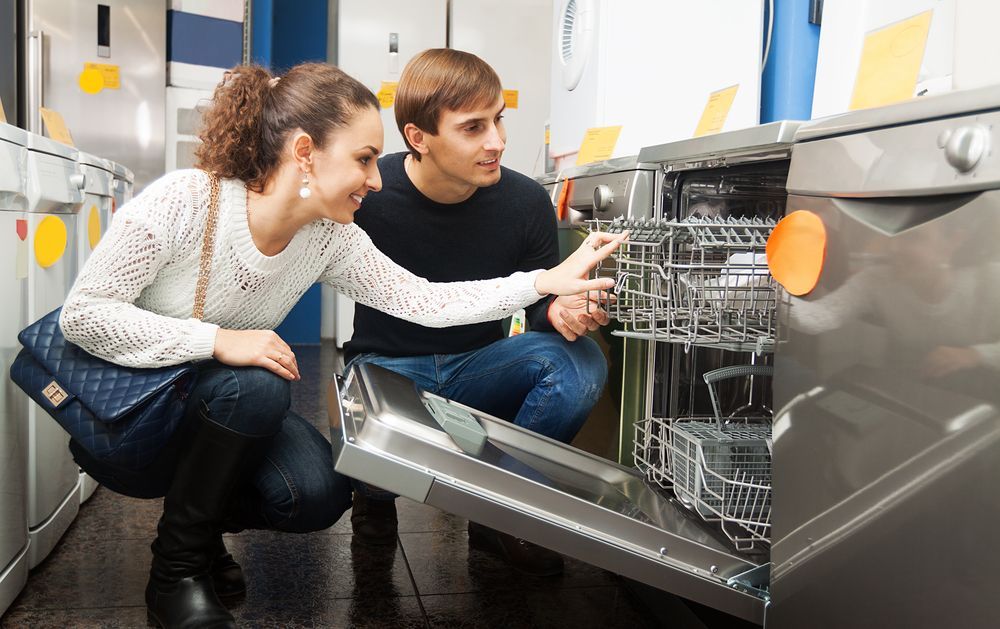
In the past few years, the market for dishwashers has expanded tremendously. Now, companies make bold claims about the effectiveness, efficiency, and convenience afforded by their dishwashers, to the point that it becomes difficult to sort through all that information. Fortunately, we're here to help: our Dishwashers shopping guide will help you choose the perfect dishwasher for your home.
•Basic Tips
In general, look for the dishwashers suited to your habits. If you prefer to extensively pre-rinse your dishes, you probably won't need a high-power or water-heavy dishwasher. Meanwhile, if you don't pre-rinse extensively or eat lots of particulate foods like rice, you might want to pay a little extra for a dishwasher with a food disposable. Convenience is also important--if you can spin it, look for dishwashers that can fit the larger or less orthodox dishes in your pantry. Finally, always go for stainless steel tubs and parts if you have the option: the money and time you'll save in stain removal will more than make up the investment.
•Varieties
There are three broad types of dishwashers to choose from: drawer models, budget-priced traditional washers, and expensive traditional dishwashers. Drawer models differ from the others in that they come in the form of stacked drawers that can be loaded individually. This allows for unprecedented selection and works well in small kitchens, but tends to lower the amount of dishes in a load. They also tend to be rather expensive compared to our next option: bargain priced traditional dishwashers. Generally costing around $500, good dishwashers of this caliber provide all the effectiveness and much of the efficiency of higher end models while costing far less. On the other hand, the most expensive traditional dishwashers tend to be quietest while running, have more loading options for large or oddly shaped dishes, and more cycle options. They also tend to be slightly more efficient than lower-end models when it comes to water use... but come with the obvious downside of costing $800 or more.
•Features
The most important extra features are those that impact efficiency or convenience. As mentioned above, adjustable racks are very convenient and might be worth paying for if you use lots of casserole dishes, blenders, or the like. Meanwhile, self-cleaning filters are great for those who need to handle heavy loads (note, however, that these are much noisier than the manual cleaning options). While some high-end dishwashers have special cycles tailored for specific types of dishes, these are seldom really necessary (pots and pans usually clean just fine in a regular dishwasher, while fine china should be scrubbed by hand whenever possible). On the other hand, soil level and pre-rinse options can help you save money by conserving water.
•Brands
When it comes to reliable, affordable dishwashers, Kenmore has a reputation for both qualities that's hard to compare to. Those looking for higher-end dishwashers are recommended to try the Kitchenware line, which features numerous electronic features and displays, and the Bosch brand, which is highly energy efficient for its extreme scrubbing power (note, however, that Bosch and most other European lines have manual filters). Finally, those seeking a midpoint between the two are recommended to go for Whirpool brand dishwashers, which offer some of the best mid-priced traditional machines on the market.
Read next


Computers Shopping Guide

